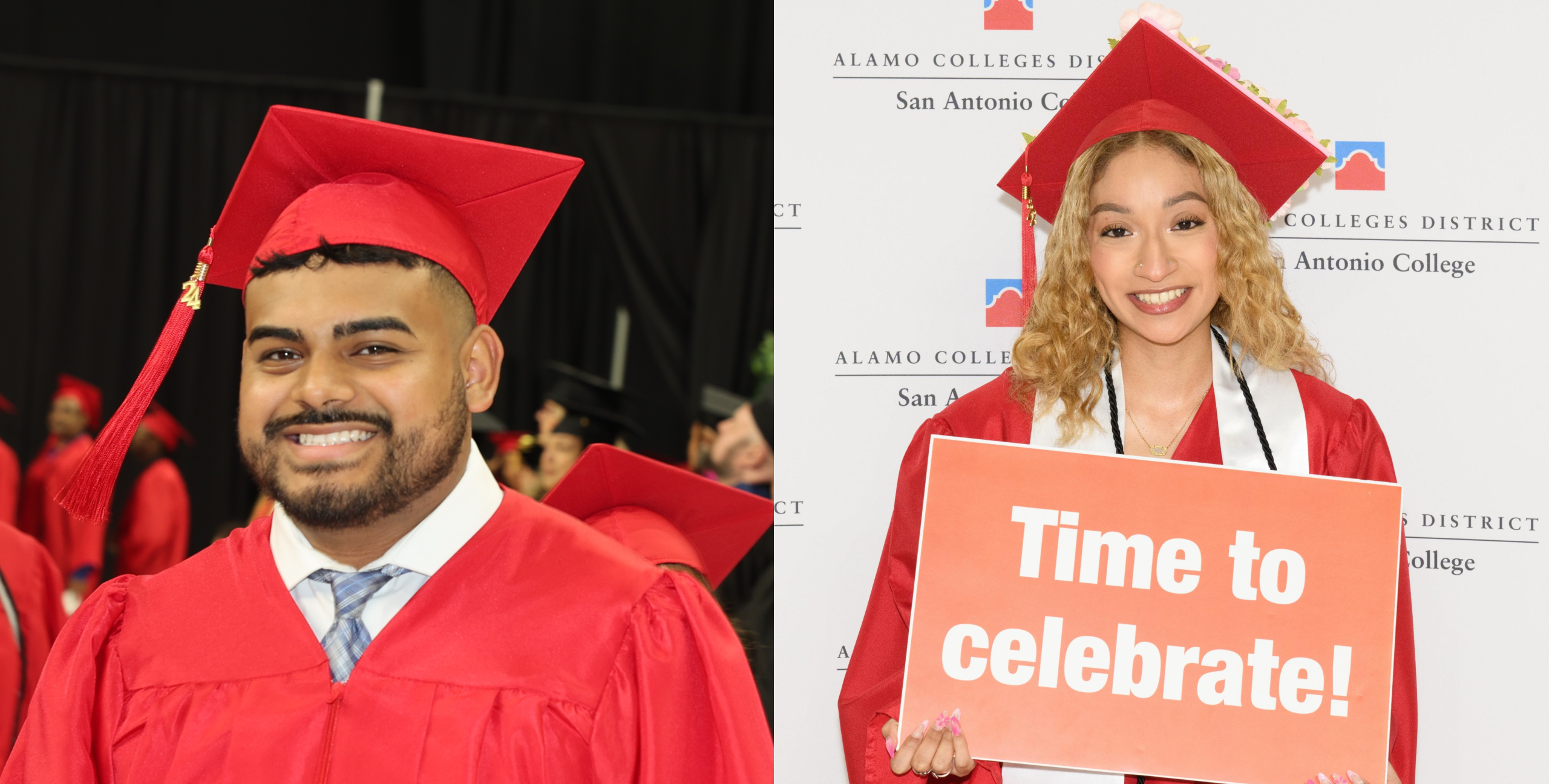Exploring College

Chapter Outline
1.1. Why college and this course?
1.2. The First Year of College Will Be an Experience
1.3. College Culture and Expectations
1.4. Personal and Campus Safety
1.5. How can this course and this book help?
Student Survey
Welcome to San Antonio College! This course will help you gain the skills, behaviors, and attitudes needed to meet your academic goals. Your instructor is passionate about helping first-semester students be successful as they begin their college journeys. Let’s start with a quick survey to see how you feel about your ability to meet the expectations of college.
How do you feel about your ability to meet the expectations of college? Rank the following questions on a scale of 1 to 4, with 1 meaning “least like me” and 4 meaning “most like me.”
- _______ I am fully aware of the expectations of college and how to meet them.
- _______ I know why I am in college and have clear goals that I want to achieve.
- _______ I know what is important to me and how college fits into my life mission.
- _______ Most of the time, I take responsibility for learning new and challenging concepts.
- _______ I feel comfortable working with faculty, advisors, and classmates to accomplish my goals.
Don’t be concerned with the results. If your score is low, you will gain even more from this book.
Chapter Outcomes
In this chapter, you will learn about what you can do to get ready for college. By the time you complete this chapter, you should be able to do the following:
- Recognize the purpose and value of college.
- Articulate personal mission statement.
- Describe the transitional experience of the first year of college.
- Discuss how to handle college culture and expectations.
- Identify campus resources for supporting your college success.
- Get acquainted with college polices and safety procedures.
Introduction
| Reggie | Marisol |
|---|---|
| Reggie has, after much thought and with a high level of family support, decided to enroll in college. It has been a dream in the making, as he was unable to attend immediately after high school graduation. Instead, he worked for several years in his family’s business, got married, had a son, and then decided that he didn’t want to spend the rest of his life regretting that he didn’t get a chance to follow his dreams of becoming a teacher. Because it has been almost a decade since he sat in a classroom, he is worried about how he will fit in as an adult learner returning to college. Will his classmates think he is too old? Will his professors think he is not ready for the challenges of college work? Will his family get tired of his long nights at the library and his new priorities? There is so much Reggie is unsure of, yet he knows it’s a step in the right direction. | It has been only three months since Marisol graduated from high school. She graduated in the top 10 percent of her class, and she earned college credit while in high school. She feels academically prepared, and she has a good sense of what degree she wants to earn. Since Marisol was 5 years old, she’s wanted to be an engineer because she loved building things in the backyard with her father’s tools. He always encouraged her to follow her dreams, and her whole family was supportive of her hobbies and interests. However, Marisol is concerned that her choice of major will keep her from dance, creative writing, and other passions. Furthermore, Marisol doesn’t know anyone at this college. Will she be able to find new friends quickly? Will her engineering classes crush her or motivate her to complete college? Will she be able to explore other interests? Marisol has a lot on her mind, but she aims to face these challenges head-on. |
While Reggie and Marisol have had different experiences and certainly have different motivations for enrolling in college, they have quite a bit in common. They are both committed to this new chapter in their lives, and they are both connected to their families in ways that can influence their commitment to this pursuit. What they don’t know just yet—is that they will have even more in common as they move through each term, focus on a major, and plan for life after graduation. And they have a lot in common with you because you are in a similar position—starting the next chapter of the rest of your life.
In this chapter, you will first learn more about identifying the reason you are in college and get clarity on what your life mission is. This is an important first step because knowing your why and your purpose will keep you motivated. Next, the chapter will cover the transitions you may experience as a new college student. Then, the chapter will focus on how you can acclimate to the culture and meet the expectations—all of which will make the transition to a full-fledged college student easier. Finally, the chapter will provide you with strategies for overcoming the challenges that you may face by providing information about how to find and access resources and stay safe.
Licenses and Attribution
CC Licensed Content
- College Success by Amy Baldwin is licensed CC BY. Access for free.
Images or Graphic Elements
- Images used by permission from Alamo Colleges District Department of Communications.

